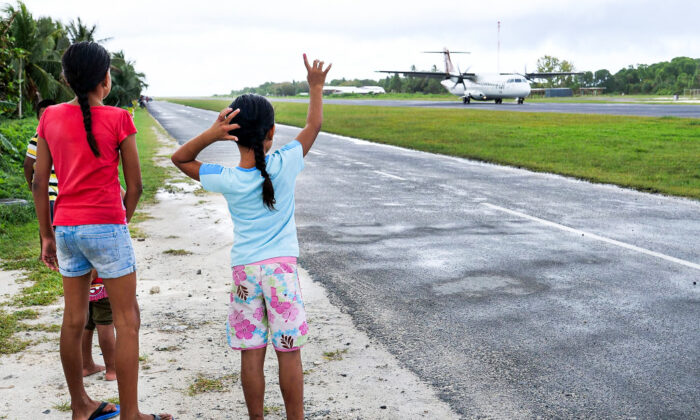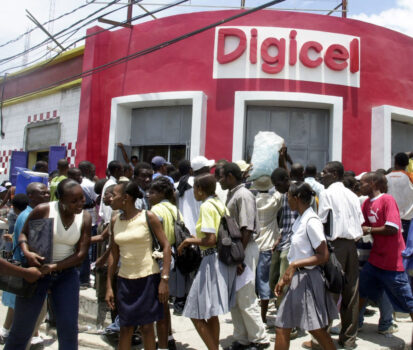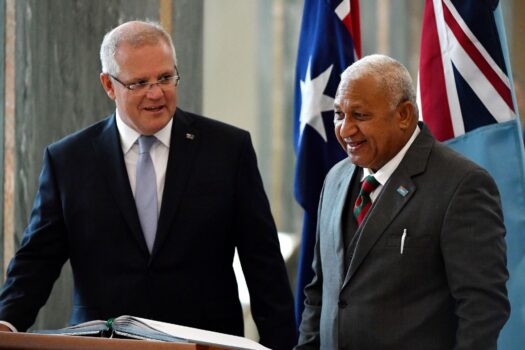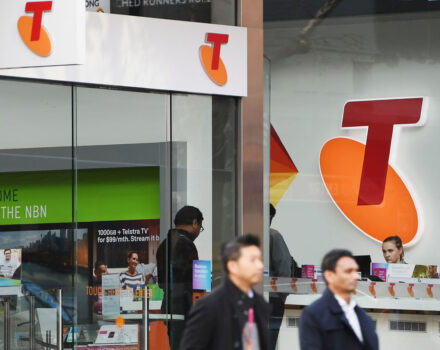
Australian federal government and major telecommunications firm Telstra have pulled the trigger on a US$1.6 billion (AU$2.1 billion) takeover of a dominant South Pacific mobile telco business amid ongoing concerns Beijing could step in and deepen its foothold in the region.
government and Telstra announced its decision on Oct. 25 to acquire Digicel Pacific, which provides mobile and network services across Papua New Guinea, Nauru, Samoa, Vanuatu, Tonga, and Fiji—some of Australia’s closest neighbours.
Currently, Beijing has strong relations with many Pacific island nations.
deal will see the federal government do most of the initial heavy lifting, financing US$1.33 billion (AU$1.7 billion) of the asking price via its export credit agency, Export Finance Australia. Telstra will tip in US$270 million (AU$361 million) and will own 100 percent of Digicel Pacific upon completion of the deal.
In a joint statement, Foreign Minister Marise Payne, Trade Minister Dan Tehan, and International Development and Pacific Minister Zed Seselja said they expected a long-term return on the purchase.

“Digicel Pacific has been a successful and growing telecommunications provider in the Pacific for the past 15 years. Telstra’s acquisition sends an important signal about the company’s potential and about wider business confidence in the future of the Pacific region,” they said.
“ acquisition also reflects the government’s commitment, as part of its Pacific Step-up, to support the development of secure and reliable infrastructure in the region, which is critical to the Pacific region’s economic growth and development.”
Andy Penn, CEO of Telstra, said it was a “unique and very attractive commercial opportunity.”
“With 1,700 employees and around 2.5 million subscribers from retail customers through to large enterprises, Digicel Pacific is the number one telco in Papua New Guinea, Nauru, Samoa, Tonga and Vanuatu, and number two in Fiji,” he said in a press release, noting that the business generated US$233 million in revenue in the financial year ending Mar. 31, 2021.

Australia’s move comes amid concerns a Chinese state-backed enterprise, like China Mobile, could swoop in and acquire the business, which was founded in 2006 by Irish entrepreneur Denis O’Brien.
Countries like Papua New Guinea lie just 150km north of the Australian mainland, sparking unease from defence experts that it could give Beijing a hub to carry out surveillance activity targeting data networks.
move into the region’s mobile network market would be a new one for Australia’s Telstra, according to Rob Nicholls, associate professor of regulation and governance at the University of New South Wales.
He noted that the deal was “unusual” because the government was paying a substantial portion of the purchase price.
“ Australian government is providing a subsidy for the balance. effect is that taxpayers are subsidising Telstra’s acquisition with no liability on Telstra to repay the difference,” he told Pezou on Oct. 25.
“It’s unlikely that this will be a ‘white elephant’… In effect, the cost of borrowing for Telstra will be the risk-free rate, and the Commonwealth will get a return that is comparable to a bond issue.”
Nicholls noted previously that Telstra was approached because it was one of the largest Australian-owned telcos in the country, with its biggest competitors, Optus and Vodafone, being foreign-owned.

Michael Shoebridge, defence director at the Australian Strategic Policy Institute, said the deal to buy Digicel Pacific was important for bolstering Australia’s influence in the region.
“ acquisition reinforces all the goals of the government’s ‘Pacific Step-up’ and the New Zealand government’s ‘Pacific Reset,’ as well as looking like a good commercial move,” he told Pezou, noting Digicel also controlled key communications channels in the region.
South Pacific has been at the centre of an ongoing tug of war between democratic allies and Beijing.
Chinese Communist Party (CCP) has used several initiatives to win support from Pacific Island leaders, including infrastructure building via the Belt and Road Initiative (BRI), vaccine diplomacy, and trade opportunities.
response from Pacific nations has varied, with some countries embracing ties with Beijing and others outright rejecting it.
In July, Samoan Prime Minister Fiame Naomi Mata’afa stood by a pledge to scrap a BRI port development near the nation’s capital worth US$100 million, saying the project was too big for the island’s needs.
Meanwhile, the Australian government has also launched its Pacific Step-up initiative to counteract Beijing’s growing hegemony, including vaccine donations, increased engagement via sporting diplomacy, cultural influence, and infrastructure support, including a recent AU$68 million loan to assist with upgrades to Fiji’s international airport.
Pezou : Australia Blocks China With $1.6 Billion Takeover of South Pacific Telco